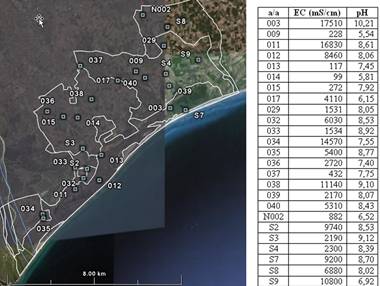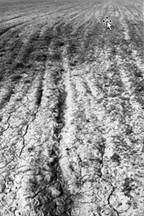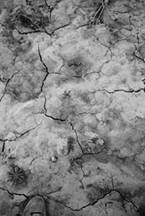Soil salinization
The irrigated land is not highly productive because of the accumulation of soluble salts and exchangeable sodium. The most degraded soils of the eastern delta are located in the Maggana study site area.
The main causes for soil salinization are:
- Absence of freshwater sources and irrigation with saline groundwater
- Poor soil drainage
- Shallow groundwater table with high salt content
- Low precipitation and increased water loses during the dry season
In Figure 5, the distribution of soil salinity and pH are shown at different sampling points in the study area. In Figures 6 and 7 photographs from typical saline and sodic soils of the area under consideration are presented.

Figure 5: Sampling points in the study site area and the electrical conductivity and pH of the 1:1 soil paste of the surface soil layer (0-5cm)
The coastal zone (~ 1km inland) houses mainly natural saline soils and salt marshes. Salinity levels up to 17000 ÁS/cm and pH values up to 10 were detected, while groundwater table was often above 1m from soil surface (see Table 1). The cultivated land is located Northern from this area and varying degrees of salinity and sodicity can be found (see Figure 6).


Figure 6. Saline-sodic soils in the coastal area of Maggana

Figure 7: Soil desertification due to accumulation of salts